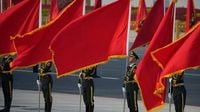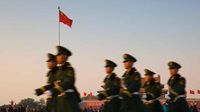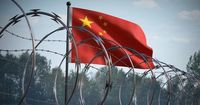In a shocking display of state power, China executed four Canadian citizens earlier this year, as revealed by Canadian Foreign Minister Mélanie Joly. The executions, which took place in recent months, were announced publicly on March 19, 2025, prompting significant condemnation from Canada. Joly, addressing reporters in Ottawa, expressed her outrage, stating, "We condemn the executions of Canadians in China in the strongest terms." This unprecedented action marks a severe escalation in tensions between Canada and China, which have been brewing since the arrest of Huawei executive Meng Wanzhou in 2018.
The Chinese Embassy in Ottawa claimed that the executions were due to drug offenses. Despite the assertion, details regarding the identities of the executed individuals have been kept confidential at the request of their families. Joly explained that all four individuals held dual citizenship, a fact the Chinese government does not recognize, which complicates their legal standing and the Canadian government's ability to intervene on their behalf.
The circumstances surrounding the executions are alarming. China is widely reported to conduct more executions annually than the rest of the world combined, although specific figures are considered a state secret. Critics, including Joly and human rights advocates, have scrutinized China's punitive measures, especially regarding drug-related offenses, which are dealt with under a stringent zero-tolerance policy. Mao Ning, spokesperson for the Chinese Foreign Ministry, defended the executions, stating that drug offenses are considered serious crimes harmful to society.
On March 20, 2025, the Foreign Ministry issued a statement reiterating that China acted within the confines of its laws, ensuring equal treatment of defendants regardless of their nationality. Mao emphasized that the cases were handled strictly and fairly according to legal processes, and that sufficient evidence supported the charges against the Canadians. However, the veracity of such claims continues to be questioned, especially amid increasing scrutiny over China's justice system.
The gravity of the situation further escalated earlier this month when China imposed retaliatory tariffs on several Canadian agricultural and food imports, following Canada's own tariff impositions on Chinese products, including electric vehicles and materials like steel and aluminum. This tit-for-tat trade war underscores the fragile diplomatic ties between the two nations.
Joly had previously disclosed that both she and former Prime Minister Justin Trudeau had personally requested leniency from the Chinese government, reflecting the severity of the diplomatic crisis. However, their pleas were disregarded, illustrating the stark reality and the growing complexities of international relations in the region.
As more details emerge about this incident, advocacy groups such as Amnesty International are raising alarms over the potential for similar cases involving foreign nationals. They argue that while drug offenses are indeed serious, the response should not include the death penalty, especially against a backdrop of insufficient transparency and due process.
Amnesty International estimates that thousands of individuals face execution each year in China, yet statistics surrounding the death penalty remain closely guarded by the state. The debates surrounding the morality and ethics of capital punishment intensify as international scrutiny mounts over these executions and their broader implications.
Although the four Canadians who lost their lives due to severe drug charges represent a tragic incident, they are a part of a larger narrative regarding China's approach to justice. As the world watches, the actions of both nations will be key in determining the relations that could evolve further.
The Canadian government continues to grapple with its response, trying to balance domestic expectations for a robust defense of human rights with the dire realities of international diplomacy and trade. The specter of these executions looms over Ottawa, challenging officials to rethink their strategies in dealing with China as they walk a tightrope of asserting their values while safeguarding national interests.
Responses to the executions from international communities will likely take shape in the coming weeks as governments weigh their own positions in relation to China, especially as global concerns about human rights practices grow. The situation also serves as a litmus test of Canada's standing in the international arena, potentially impacting its future diplomatic engagements.
In conclusion, the execution of four Canadians in China reflects significant diplomatic tensions and raises critical questions about justice, governance, and human rights in today's world.








